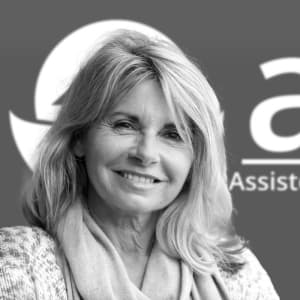What Nurses Should Know About the 988 Suicide Prevention Hotline

If you or someone you know is considering suicide, please contact the 988 Suicide and Crisis Lifeline (dial 988), available 24 hours a day, seven days a week. All calls are confidential, and anyone can use this service. (For more information, see:https://988lifeline.org/.)
- The rate of depression and anxiety escalated during the COVID pandemic.
- The 988 suicide and crisis hotline is the new number that connects callers to a national network of local crisis centers, providing free and confidential support 24/7.
- The suicide prevention hotline offers help for those in crisis, family members, and healthcare workers who often suffer in silence.
Despite advancements in patient care, mental health issues are still highly stigmatized. Supporters of the new 988 suicide prevention hotline number hope easier and more confidential access to mental health support will help lower suicide rates.
We asked two nurses to discuss what happens when a person dials the 988 hotline. Review how the new number will impact nurses and healthcare, along with concerns about the hotline’s readiness.
What Happens When You Dial 988?
The new 988 suicide prevention hotline number connects callers to the same mental health counselors from the 800-number for the National Suicide Prevention Lifeline (available since 2005) but with a few differences.
People who want to connect with crisis counselors are not limited to just calling 988. They can now text, call, or chat with trained individuals.
“My favorite thing about this is that folks have a number that is easy to remember. You don’t have to memorize the 1-800 number. Just dial 988,” says Andrea Votendahl, RN, BSN, a mobile care coordinator.
After dialing the 988 suicide hotline, the caller automatically hears a recorded message that offers two options. The number connects a caller to the National Suicide Prevention Lifeline or the Veterans Crisis Line. Based on the caller’s area code, the call is then routed to a trained counselor at the closest crisis center.
The counselor is trained to listen to the caller, try to understand what the caller is experiencing, and offer support. They then collaborate with the caller to find ways to get better and connect with additional resources.
Counselors are available 24/7 for people in suicidal crisis or emotional distress.The line is not limited to only people considering suicide.
This hotline comes at a much needed time. A Gallup poll published in 2011 showed that 48.4% of Americans said they were happy “a lot” in 2010. In 2020, only 14% said they were “very happy” in a survey by NORC at the University of Chicago. According to the Substance Abuse and Mental Health Services Administration (SAMHSA), one person died from suicide every 11 minutes in 2020.
Yet, according to the Centers for Disease Control and Prevention, this was lower than in 2018, despite the escalating rate of depression and anxiety from the COVID pandemic. Japan’s suicide rate rose drastically as the number in October 2020 was far greater than the number of people who had died from COVID the entire year.
How 988 Will Impact Nurses or Healthcare
Nancy Mitchell has over 37 years of experience in geriatric nursing care. She sees the new hotline number as a step toward addressing the mental health needs of healthcare workers. Many doctors and nurses struggle in silence, even before the COVID pandemic.
“It’s important that we have an avenue to release pent-up emotions and receive the support needed to keep pushing through the challenges of such demanding careers,” she says. “After all, if we can’t care for ourselves, it’s impossible for us to show up at our best for patients in need.”
Votendahl notes that the crisis hotline will take calls from the individual, family members, or healthcare providers. The phone number is easier to remember, and nurses may call to get information about available resources.
Why Nurses Should Know About This Hotline
Mitchell believes the hotline will benefit patients and the healthcare community. She points out that burnout is still stigmatized, despite how prevalent the condition has become. Before the pandemic, 40% of physicians reported depression and suicidal ideation.
During the pandemic, 20% of healthcare workers quit, and 4 out of 5 that stayed reported staff shortages have created unsafe working conditions.
“Many nurses feel ashamed to confront their issues with anxiety, depression, and burnout because they worry about whether others will consider them unfit to continue their roles,” Mitchell says. “An anonymous call could be the resource that saves many careers and lives in the future.”
Votendahl talked about the necessity of offering healthcare 24/7, outside hours when doctors and nurses are commonly available. She believes this will give patients a place to go for support and resources any time of the day or night.
Concerns About Hotline Readiness
The 988 suicide prevention hotline is one public health tool to address the rising rates of depression, anxiety, and mental health challenges in the U.S. Although the results are likely to be better than dialing 911 for help, there are concerns that the system was not ready to be rolled out yet.
Presently, the system provides support to individuals who need to talk or who need specific resources. However, healthcare professionals and the mental health community are concerned that the police will be automatically called, especially if the community does not have a mobile crisis response team.
Some communities have teams trained in mental health to respond to in-person needs. Ideally, when the system works the way it should, this means people will receive better mental healthcare and have less interaction with the police.
This is important since the lack of a robust mental health response can result in tragedy. Roughly 25% of fatal police shootings between 2015 and 2020 involved a person with a mental health condition. Around 44% of people in jail and 37% of people in prison have a mental health condition.
One goal for the 988 hotline system is to have mobile crisis response teams nationwide. However, due to funding and logistics, these teams have not materialized. Better infrastructure and law enforcement training must also be a part of the system to improve care during a mental health crisis.
There was $282 million in federal funding allocated to help support the new 988 system. Yet, these funds are set to expire in just a few years. States like Illinois and Ohio have not dedicated funding to the lifeline.
In fact, some states, like Illinois, have been underinvested for years, which affects the care people receive. For example, in the first three months of 2022, nearly 5,500 calls were dropped without being answered. The new 988 phone number is expected to increase call volume on an already stressed system.
Does 988 Call the Cops?
To date, the largest concern affecting callers and mental health professionals is what is called “nonconsensual active rescue.” This means that the police are called when the mental health volunteer believes in-person intervention is necessary.
Emily Krebs, Ph.D., who researches suicide and is an assistant professor at Fordham University, took to Twitter after the 988 suicide hotline announcement with concerns about the system, including:
- The system is linked to nonconsensual active rescue.
- The system can and will trace calls and send the police if they feel it’s necessary.
- This is a barrier for people when they know the call is not truly confidential.
- People still get fired, lose housing, and lose access to their children if they are deemed a danger to themself.
- Issues with police violence are greater for people of color, immigrants, trans people, or members of other marginalized groups.
- Nonconsensual active rescue often leads to nonconsensual treatment which is violent and dehumanizing, leading to a much higher risk of suicide after release.
According to SAMHSA, fewer than 2% of all calls are routed to 911, “namely when a suicide attempt is in progress.” However, there is evidence this number is much higher, and the repercussions can be life changing.
Whether to involve law enforcement is based on several factors. During a call, text, or chat, bots may be working to triage the caller by searching for trigger words that move the contact to the head of the line. A human counselor may use metrics to determine if the caller is at “imminent risk” to themself or others.
Based on this potentially faulty information, the system uses geolocation to locate the caller using the cell phone company, IPS address, or the GPS chip on your mobile phone. Sometimes counselors will loop in 911 operators without letting the caller know the police are on the way.
While the new 988 system may be a better option for a mental health crisis than calling 911, it is far from perfect.
Other Suicide “Warmlines” to Know
The 988 hotline system is a national system that routes calls to local crisis centers. When local centers are not available, the call may be rerouted to a center in another time zone. Counselors may not understand the local demands or resources. Other options include:
National Suicide Prevention Lifeline: 1-800-273-TALK (8255)
Note that calls are routed to 988.
Veterans Crisis Line: 988 (press “1”)
Crisis Text Line: Text “Hello” to 741741
The hotline receives messages about bullying, sexual harassment or assault, depression, suicide, and abuse.
National Domestic Violence Hotline: Text “START” to 88788 or call 1-800-799-7233.
The hotline is for those in domestic abuse or violent situations or for a friend or family member who is concerned about a loved one.
RAINN: 1-800-656-4673
This is the Rape, Abuse, & Incest National Network hotline for anyone who has experienced sexual assault or abuse. Callers are routed to a local organization.
Trans Lifeline: 1-877-565-8860
The hotline provides support specifically for transgender callers. They offer guidance and support to those in crisis or questioning their gender.
Meet Our Contributors

Andrea Votendahl, also a Washington state native, has more than 28 years experience as a nurse in the Seattle area. Most recently, Votendahl worked as an organizer for a Seattle nurses’ union and before that experience, she was a case manager, nursing supervisor, nurse educator, and med-surg telemetry nurse.

Nancy Mitchell is a registered nurse and contributing writer for AssistedLivingCenter.com She has over 37 years experience in geriatric nursing care both as a senior care nurse and director of nursing care.
You might be interested in

Nurse’s Guide to Caring for Patients With Mental Health Challenges
Nursing care of patients with mental health challenges calls for understanding, empathy, and skill. Learn more about best practices in mental health nursing.

How to Manage Stress as a Nurse
Have you learned how to manage stress as a nurse? These 15 strategies can help reduce stress and protect your physical and mental health.

Coping With Depression and Maintaining Mental Health in Nursing School
Explore the contributors to and symptoms of nursing school depression, along with coping resources for nursing students.